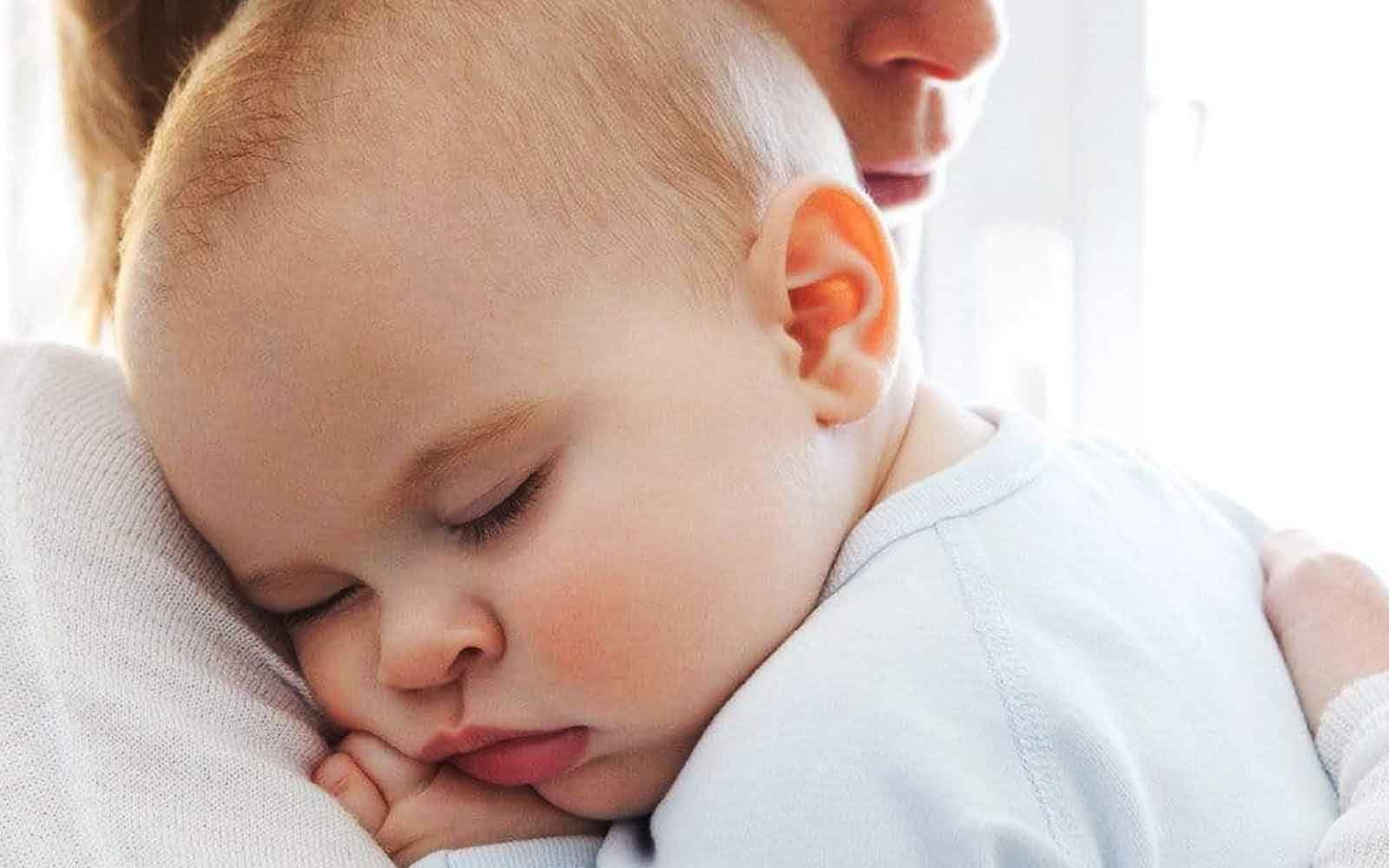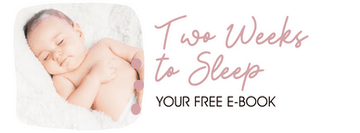
Is my baby sick? Or teething? How can I tell?
We’ve all been there…
It’s the middle of the night and you’re rocking your crying baby, wondering what the heck is going on?! She’s usually an awesome sleeper but suddenly she won’t feed, won’t go to sleep. You’re sure she is sick. Or maybe teething? Or, dare you think it, BOTH?!
At some point, you both do sleep.
But then the next day, some well-meaning individual tells you that you should have just left your baby to cry themselves to sleep, or “you have to teach her to self settle”, “she’ll get used to being rocked to sleep”, “you’ve got to teach her who the boss is”.
And while this (unwarranted) advice may have elements of truth in some cases - DO NOT start your baby on some hard-core sleep training method the very next second!
The thing to remember is, when your baby suddenly starts acting OUTSIDE their normal routine or behaviour, this is a big red flag that there is something unsettling them.
In this article:
- Isn't it always "teething"?
- When do babies start teething?
- How can I tell if my little one is teething?
- How to help a teething baby sleep better
- Signs your baby is unwell
- My personal experience with Charlie at 4 months old
Get your little one’s sleep back on track.
Get guidance, advice & exclusive support through the sleep regressions, nap transitions and big sleep changes to come.
Choose your Sleep Solution
Isn’t it always “teething”?
Grandmas, great aunts, neighbours, some medical professionals (and almost everyone else with well-meaning advice) LOVE to blame teeth!
She’s grumpy – must be teething. She’s not feeding well – must be teething. She’s not sleeping well – must be teething. She’s drooling – must be teething.
The truth of the matter is teething is usually a very short lived nightmare that happens for a day or two right as the tooth is actually breaking through the gum and in every case you can actually SEE THE TOOTH emerging. This is the only real clue you need as to whether your baby’s discomfort is caused by teeth. If you can’t see a tooth literally exploding in your baby’s mouth, then it’s NOT teething!
Don't be fooled by "teething" symptoms that are not actually due to teething...
At around 3 months babies go through a whole lot of developmental changes that mimic teething. I hate this stage. They start to shove everything into their mouths, they start drooling up a storm – this is normal and it is barely ever linked to teething (fun fact: it’s actually all preparation for eating solid food!).
Babies also have a significant regression in their sleep around 4 months old, and this too has nothing to do with teeth! You can read more about this regression HERE, but for now it's suffice to say that your baby will definitely start waking a LOT more during this time.
This doesn’t mean that they’ve got teeth coming. Or are sick. Necessarily…
So when do babies start teething?
The age when babies get their first teeth can vary quite a lot! Some babies can get their first teeth before 4 months, others not until closer to 12 months. Most babies though will get their first toothy pegs peeking through around 6 months of age. The first ones to come through will be their bottom front teeth - so if your little one is approaching 6 months, keep an eye out!
How can I tell if my baby is teething?
Baby teeth sometimes emerge with no pain or discomfort at all.
Say goodbye to sleepless nights.
Join over 800,000 families worldwide who are enjoying excellent sleep with our Sleep Programs, created by experts in the field of pediatric sleep.
Choose your Sleep Solution
At other times, you may notice:
- their gum is sore and red where the tooth is coming through
- they have a mild temperature of less than 38C
- they have 1 flushed cheek
- they have a rash on their face
- they're rubbing their ear
- they're dribbling more than usual
- they're gnawing and chewing on things a lot
- they're more fretful than usual
- they're not sleeping very well
Can teething cause vomiting?
If your little one is being sick, it is very unlikely that this is caused by teething. If you are worried, then it is best to check with your GP.
Can teething cause fever?
While teething can give your little one a temperature, if the temperature is over 102°F / 38.9C, then it is unlikely to be teething that is the cause. Again, if you are concerned please see your GP or a health professional.
Remember, if your baby seems unwell it’s important not to brush it off as ‘just teething’. Yes, teething can raise a baby’s temperature slightly and unsettle them, but a big change in your baby's sleep, feeding or behaviour, is more likely due to illness.
How to help a teething baby sleep better
For the most part, teething is really only uncomfortable for your baby for a day or so right as the tooth is breaking through the surface of the gum - which you’ll definitely be able to see! But even then, it doesn’t usually cause prolonged disruption to a baby’s sleep or excessive night waking.
If your baby isn’t bothered by teething during the day, this is a clear sign they won’t be as bothered by it at night. In fact, at night when babies are lying down, their blood pressure is lowered so any throbbing in their mouths will be LESS uncomfortable, than it was during their awake/upright hours.
So what SHOULD you look for if you suspect your baby is unwell?
Well, the first important thing is to make sure your baby is in a good predictable sleep and feed pattern in the first place. Our Little Ones App can help you out with that, with age-appropriate, daily sleep and feed schedules that help to ensure great sleep, day and night.
Once your baby or toddler is in a consistent routine, it will be glaringly obvious if anything is amiss! You’ll definitely notice if your awesome daytime sleeper suddenly starts waking after 20 minutes at naps, crying hysterically. Or if your hungry little hippo suddenly refuses to feed.
Let's get your little one's sleep sorted ASAP!Our award-winning Sleep Programs will solve your baby's sleep challenges in no time. Take advantage of our new low prices while they last!
Choose your Sleep Solution
In THIS article, we explain how to tell if your baby is sick and what signs of illness to look out for. If your little one is showing any of the signs or symptoms mentioned here, it would be worth discussing with your doctor.
Here is what happened to me and my little Charlie (when she was around 4 months old):
I had noticed Charlie was paying a bit too much attention to her ear and refusing to nurse on one particular side. So, I took her to the doctor, who examined her and said she was fine. She did seem happy enough and her sleep hadn’t changed at all so I wasn't too concerned.
A few days went by and she started doing the same thing with her ear, sort of batting it with her fist. Perhaps she’d just suddenly discovered her ears? It happens you know! Then, the next day she woke earlier in the morning than she would normally – 5:17am to be precise.
I made sure she wasn’t too hot or cold and wasn’t hungry (I tried to nurse her and she was about as disinterested as she could be!). On that occasion I put it down to a random occurrence - that too can happen!
But the next morning she did the same thing. Now, I was paying attention! Later that morning she fell asleep on the floor, an hour before her nap, while I was changing her nappy. Her lunch nap became restless and she woke crying between sleep cycles.
BIG WARNING SIGN.
If your baby is following our sleep schedules, is able to self-settle and then suddenly starts waking between sleep cycles and not settling themselves back to sleep - something is keeping them from doing so. They are usually hungry or something is hurting or uncomfortable.
The third morning Charlie woke at 5:34am and I watched her on the video monitor try and go back to sleep. For FORTY MINUTES. In silence mind you, she wasn’t crying. It was then that I knew for sure something was up; something was preventing her from going back to sleep.
As soon as the medical centre opened, I was on the phone making an appointment. My suspicion was confirmed when Charlie refused to nurse on my right side and then proceeded to have a super restless, super short morning nap. True enough, the doctor found she had an infected left ear and a red throat. Antibiotics it was.
Despite her not having an elevated temperature (I checked about a hundred times a day) and remaining reasonably happy, I was still convinced she wasn’t 100%. Since then, for the last 5 months, Charlie has had multiple ear infections.
Each time, my only indication is her early morning waking or not resettling during the lunch nap. This baby is just so darn happy! But I am so so glad she is in a good daily pattern, which means I can catch her warning signs and whisk her to the doctor before it gets too bad.
Conclusion
Always remember that you know your baby better than anyone. YOU are the one who watches them almost all day long. My best piece of advice when it comes to sickness and babies is to trust your parenting instincts! We have them for a reason.
And it is always, always better to be safe than sorry – call the doctor and take your baby to get checked out, even if you think it’s probably nothing. And go back, again and again, if necessary.
And if it does turn out that your baby is unwell, we have loads of tips to help you with their sleep in THIS article.
___________
Bibliography
Colleen. (2017, May 5). When Do Babies Start Teething? What to Expect; WhattoExpect. https://www.whattoexpect.com/first-year/teething/
Massignan, C., Cardoso, M., Porporatti, André Luís, Aydinoz, S., Canto, Andre, L., & Bolan, M. (2016). Signs and Symptoms of Primary Tooth Eruption: A Meta-analysis. Pediatrics, 137(3). https://doi.org/10.1542/peds.2015-3501
NHS Choices. (2022). Baby teething symptoms. https://www.nhs.uk/conditions/baby/babys-development/teething/baby-teething-symptoms/

Receive product and services updates, promotional offers and other marketing communications based.





